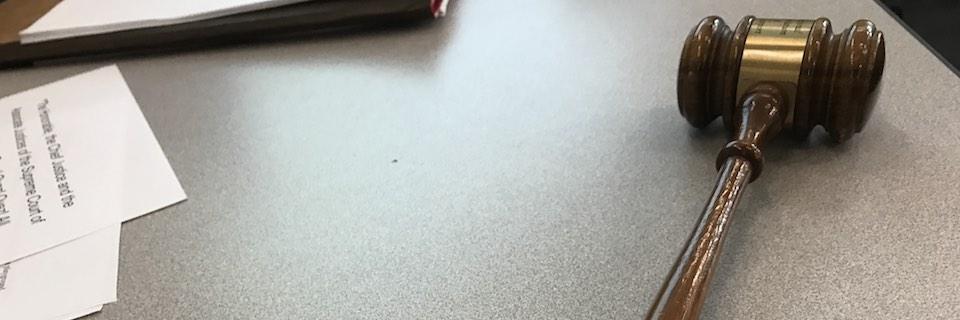Students Take on Supreme Court Case with Local Implications

This week, the U.S. Supreme Court heard arguments in a case originating from Missouri that could have national implications.
It could be a precedent-setting moment for American constitutional law and a rare moment in the spotlight of the nation’s highest court for the Show-Me-State. But, according to Thomas Ringenberg, Ph.D., Rockhurst assistant professor of political science, it is also a great learning opportunity. This week students in Ringenberg’s Supreme Court course presented their own arguments on both sides of Trinity Lutheran Church of Columbia vs. Comer.
The case centers around a church in Columbia, Missouri, which applied in 2012 for a state grant that would allow them to replace the gravel in its playground with recycled tire chips. The church was denied the grant, which they argue was a violation of religious freedom protections of the U.S. Constitution.
It’s a perfect case to build a class exercise around, Ringenberg said, because of its visibility, its implications and its recency.
“The oral arguments in the case were just delivered on Wednesday, so each group could look at those transcripts and briefs to build their case,” he said. “I think it’s one of the better ways to get people to think about the First Amendment and think through how we’re drawing these lines in the court.”
Groups of two students in Ringenberg’s class took each side of the argument and, allotted 10 minutes, made their case for a panel of three justices, which included Ringenberg and two students. From citing precedent to using the honorifics and language required of those facing the nation’s top judiciary, the exercise was designed to present the full Supreme Court experience.
Amanda Olson, a senior who plans to attend law school next year, took the mantle of chief justice. And she said hearing arguments gave her a new perspective on how law is approached at that level, and especially in contentious cases.
“I think especially in this case, there are a lot of people who have very different opinions, even if they’re on the same side,” she said. “Throughout the week, we’ve asked similar questions trying to get to the same point, but everyone has responded to them differently.”
Olson and the other student justice, fellow law-school-bound senior Josh Powers, added that being chief justice for a week was a prelude for what she might expect as an attorney.
“There are a lot of things that you miss on that side that you see on this side,” Powers said. “Making a case in front of a court is a lot like writing a paper – write a rough draft and then do another draft and then a final draft before you actually make your presentation.”
And, if all else fails, Olson said, be confident.
“I realized how important keeping your composure is,” she said. “You can see when people start to lose it and they don’t have an answer for you.”







